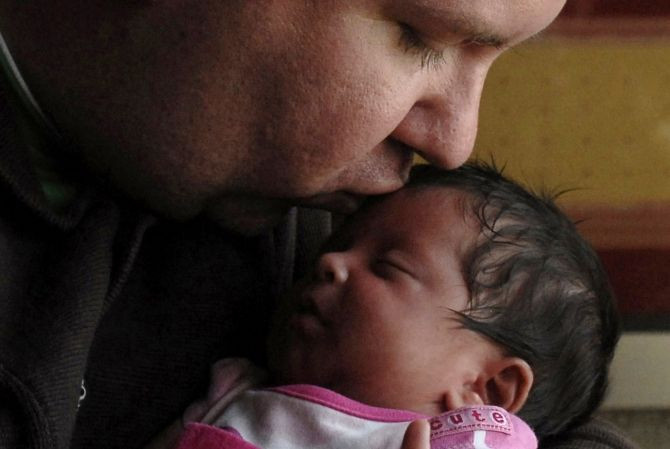A Man's Body Also Undergoes Biological Changes During Parenthood

Fathers who share a bed with their children tend to have some hormonal changes occur. The popular notion is that only mothers are biologically attuned to their child's needs but new research says that a man's body too changes during parenting.
This happens because, as previous research has pointed out, there is a drop in the levels of testosterone in men who sleep close to their children. This drop makes them more tuned in to the child's demands and makes them a better parent.
The study involved more than 350 fathers between the ages of 25 and 26. Researchers categorized these fathers based on their reported sleeping proximity to their children; fathers who slept alone, those who slept in the same room as their children and those who slept on the same surface as their children.
The fathers had their testosterone levels checked using saliva samples collected before bedtime and after waking up. There was no change in levels of testosterone in morning samples for fathers who slept alone or in the same room while fathers who slept on the same surface as their children had low levels of testosterone just before bedtime.
Medical Daily had earlier reported that fathers, more than mothers, shape their child's personality and that resilience and determination are traits determined by a father's parenting style.
Lee Gettler, an anthropologist from University of Notre Dame and an author of the study says "Human fathers' physiology has the capacity to respond to children" and that previous research has shown that hand-on dads, those who play with children, feed or read to them, have lower levels of testosterone.
Gettler says that the present research takes the idea a bit further by showing that night-time closeness to their children lowers testosterone levels that is "independent of what they are doing during the day."
"Testosterone is a hormone that frequently is a part of public discourse, but the false idea that 'manliness' is exclusively driven by testosterone often dominates the conversation. There is growing evidence that men's physiology can respond to involved parenthood - something that was long thought to be limited to women," Gettler said in a press release.
Gettler added that the idea of a dad taking active role in parenting might not be so new and that new biological evidence suggests that "males have long embraced this role." Earlier research based on content analysis had shown that men have been hands-on for many years.
The present study was published in the journal PLoS ONE.



























